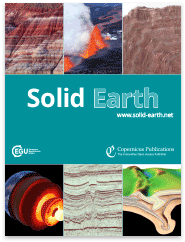
Gabarrón-Galeote, M.A., Martínez-Murillo, J.F., Quesada, M.A., Ruiz-Sinoga, J.D. 2013. Seasonal changes in the soil hydrological and erosive response depending on aspect, vegetation type and soil water repellency in different Mediterranean microenvironments. Solid Earth, 4, 497-509. DOI: 10.5194/se-4-497-2013.
Abstract
Mediterranean areas are characterized by a strong spatial variability that makes the soil hydrological response highly complex. Moreover, Mediterranean climate has marked seasons that provoke dramatic changes on soil properties determining the runoff rates, such as soil water content or soil water repellency (SWR). Thus, soil hydrological and erosive response in Mediterranean areas can be highly time- as well as space-dependant. This study shows SWR, aspect and vegetation as factors of the soil hydrological and erosive response. Erosion plots were set up in the north- and the south-facing hillslope and rainfall, runoff, sediments and SWR were monitored. Soil water repellency showed a seasonal behaviour and it was presented in three out of four microenvironments after the summer, disappearing in the wet season. In general, runoff rate was higher in shrubs patches (0.47 ± 0.67 mm) than in inter-shrub soils (1.54 ± 2.14 mm), but it changed seasonally in different ways, depending on the aspect considered, decreasing in the north-facing hillslope and increasing in the south-facing one. The main factor determining the hydrological and erosive response was the rainfall intensity, regardless of the rainfall depth of the event. This response was modulated mainly by SWR in the north-facing hillslope and the vegetation pattern in the south-facing one.
Solid Earth (SE) is an international scientific journal dedicated to the publication and discussion of multidisciplinary research on the composition, structure and dynamics of the Earth from the surface to the deep interior at all spatial and temporal scales. More at Solid Earth hompage.
